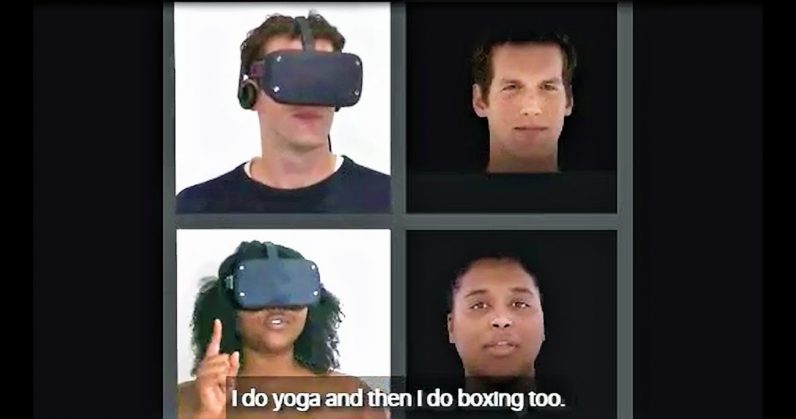Facebook Has Improved Its Prototype Virtual Reality Face Tracking
Early in 2019, Facebook revealed details about the research on futuristic photorealistic avatars and high-definition virtual reality face-tracking technology that would power these avatars.
Facebook has since progressed down the road in the development of this sophisticated technology. Last week, it showcased an improvement in the facial tracking of these avatars and how the technology is now capable of more accurately tracking the facial expression of the user.

To realize tracking quality, the researchers utilized two headsets. The regular headset had three cameras that were pointing towards the user while the training headset featured three of these cameras alongside six extra cameras in order to better capture the facial expressions of the user.
The researchers then trained a neural network using the training headset in such a way that the model could be utilized in realizing high quality results by using the regular virtual reality headset. The extra cameras have been included to offer the ground truth. According to Facebook, the use of the trained model ensures that there is almost no obvious drop in quality from 9 to 3 cameras.
Facebook is just one of the pioneers currently working on face-tracking technology. The other virtual reality company active in this space is HTC which has included a lip-tracking addon to its Vive Pro Eye virtual reality headset. However HTC is not planning to roll out a consumer version of this technology.
The Technology is Still Years Away
Facebook has been quite forthright in managing the expectations of users regarding the future prospects of this technology. During its unveiling of its codec avatars in March this year, the company was quite clear that this technology was still years away from now before it hits the consumer headsets. The company has also not provided any hints that its latest update is likely to fast-track the timeline for the launch of this technology in consumer headsets. Oculus launched two virtual reality headsets last month-the Oculus Quest and Oculus Rift S- but these did not include cameras pointing at the user’s face.
Part of Facebook’s decision to acquire Oculus was its desire to tap into the potential of social VR. While Oculus has now concluded its first generation of VR headsets, there is a high likelihood that its next generation of devices will include face-tracking functionality.
https://virtualrealitytimes.com/2019/07/03/facebook-has-improved-its-prototype-virtual-reality-face-tracking/https://virtualrealitytimes.com/wp-content/uploads/2019/03/Facebook-Codec-Avatars-600x316.jpghttps://virtualrealitytimes.com/wp-content/uploads/2019/03/Facebook-Codec-Avatars-150x90.jpgInventionsEarly in 2019, Facebook revealed details about the research on futuristic photorealistic avatars and high-definition virtual reality face-tracking technology that would power these avatars. Facebook has since progressed down the road in the development of this sophisticated technology. Last week, it showcased an improvement in the facial tracking of these...Sam OchanjiSam Ochanji[email protected]EditorVirtual Reality Times - Metaverse & VR
